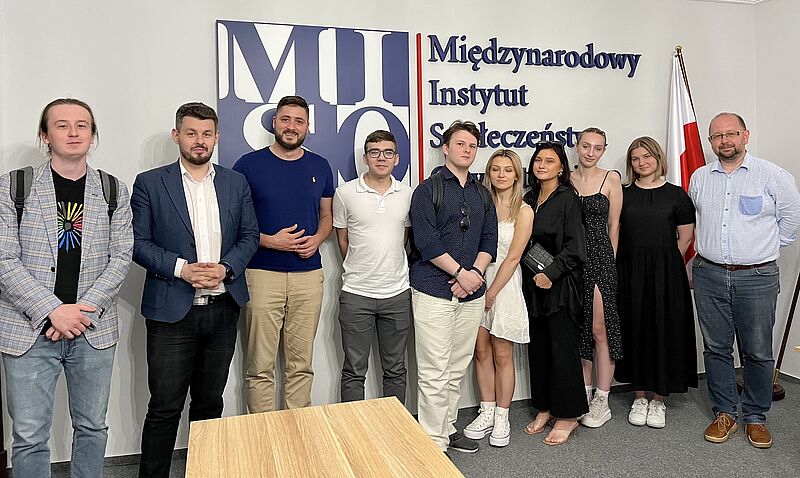MEETING WITH LAW STUDENTS FROM THE UNIVERSITY OF ECONOMICS IN KRAKÓW
The meeting was an opportunity to discuss the fostering of grassroots initiatives and civic attitudes by young people. There was a discussion about the idea of civil society, what it should be like and what forms it takes (despite the fact that civil society is not defined in the constitution, nor can it be explicitly defined, its presence should be implicitly introduced into the DNA of the Polish Constitution), the law on guarantees of freedom of conscience and religion, the law on petitions, and the law on associations.
The discussion focused on the fact that civil society is built through awareness-raising about any possible forms of action for each citizen and foreigner, and education in the basic principles governing the economy, politics and legal aspects of everyday life. The discussion revolved around the idea of civil society from the point of view of the inhabitants of small towns and villages, which allowed the participants of the meeting to perceive the problems related, among other things, to the awareness of taking grassroots initiatives and having a real impact on reality, which, unfortunately, in the current reality is replaced by passivity and submission.
The meeting highlighted the problems of people with disabilities, which are overlooked by the general public and which, despite appearances, can be solved quickly and easily if only the will for positive change and the willingness to act can be found.
The visit to MISO's office was an opportunity to convey to the young law students some topics close to every engaged citizen, broaden their horizons in terms of the changes that can be made in local communities - and most importantly, through tools such as referendums, which are available but not often used by the public.


